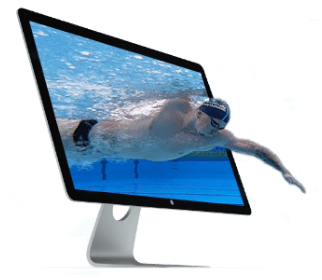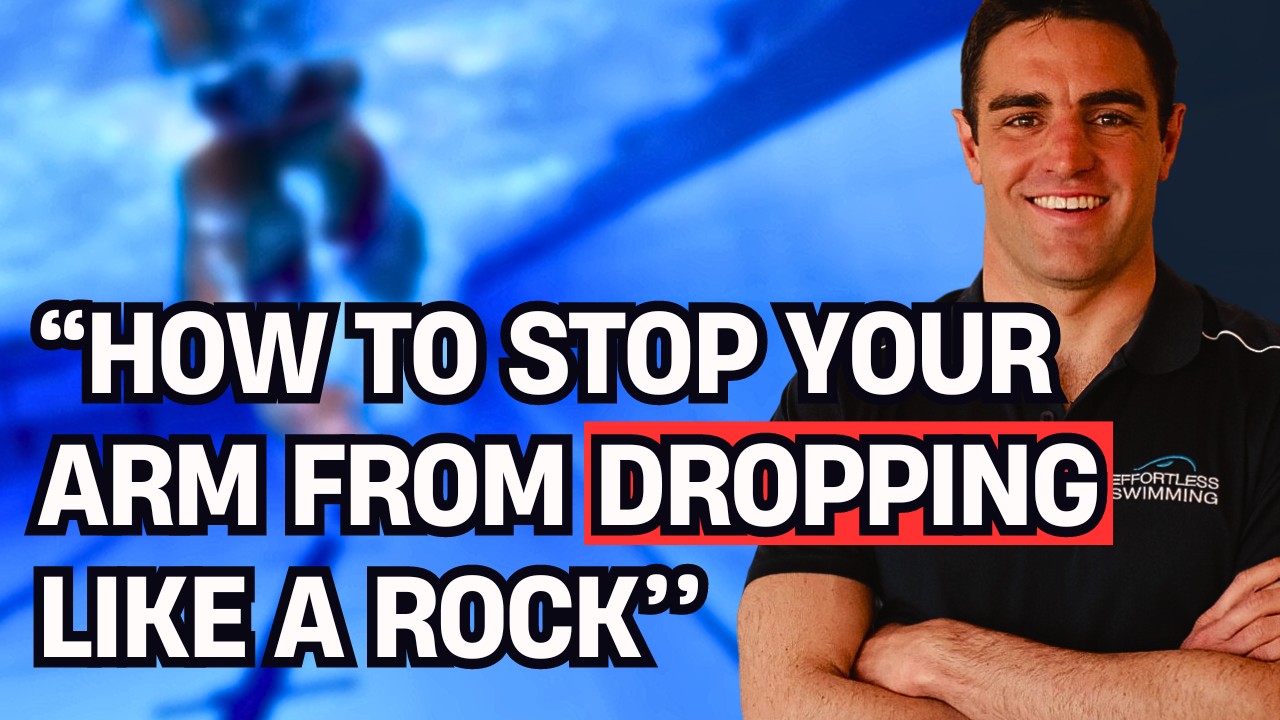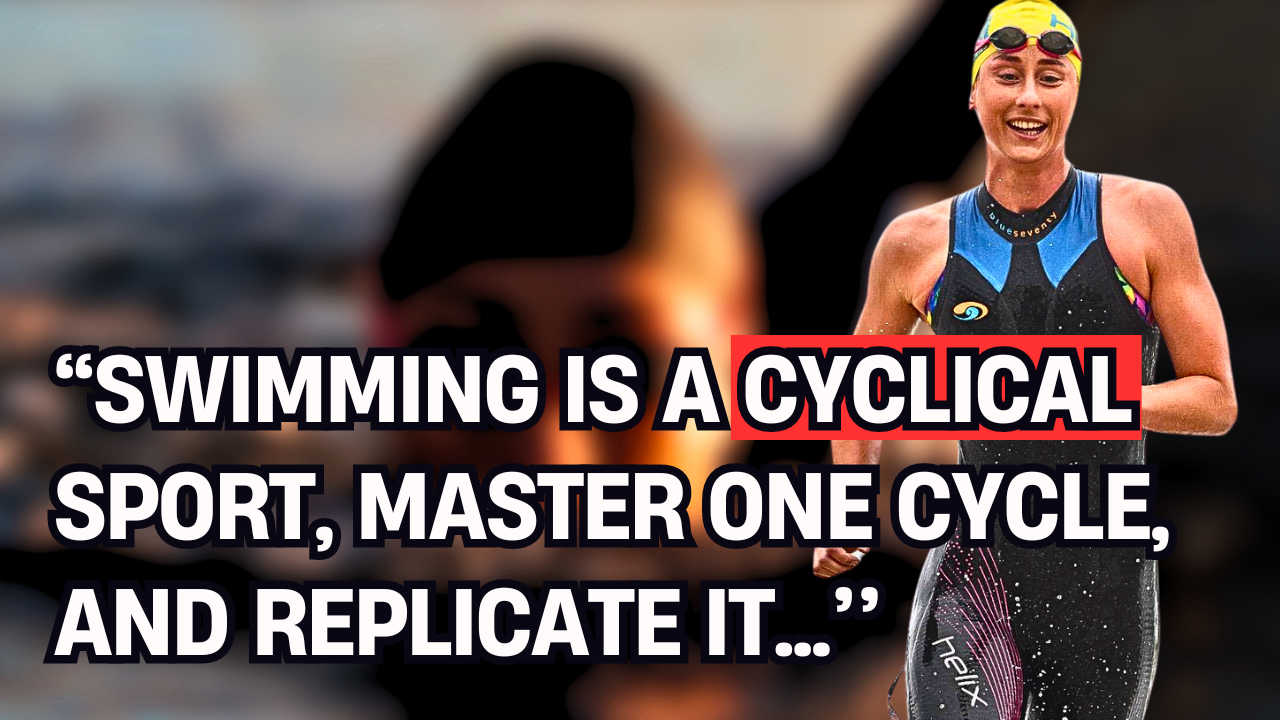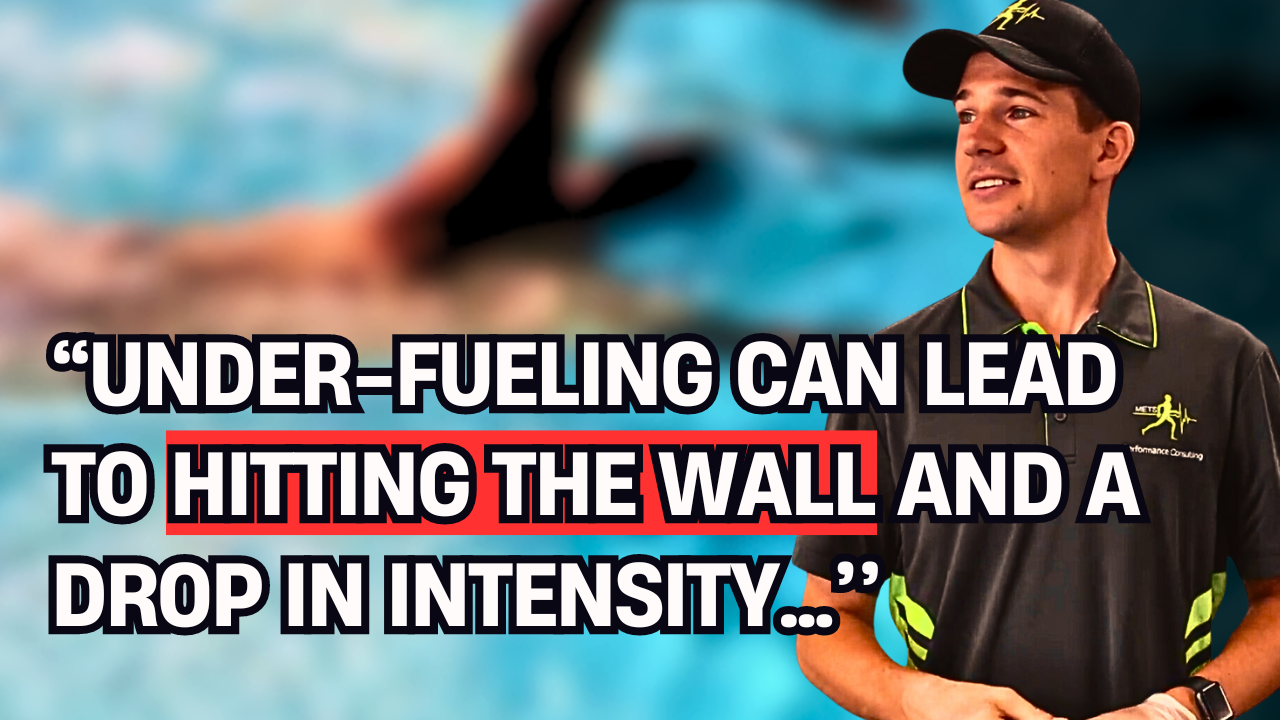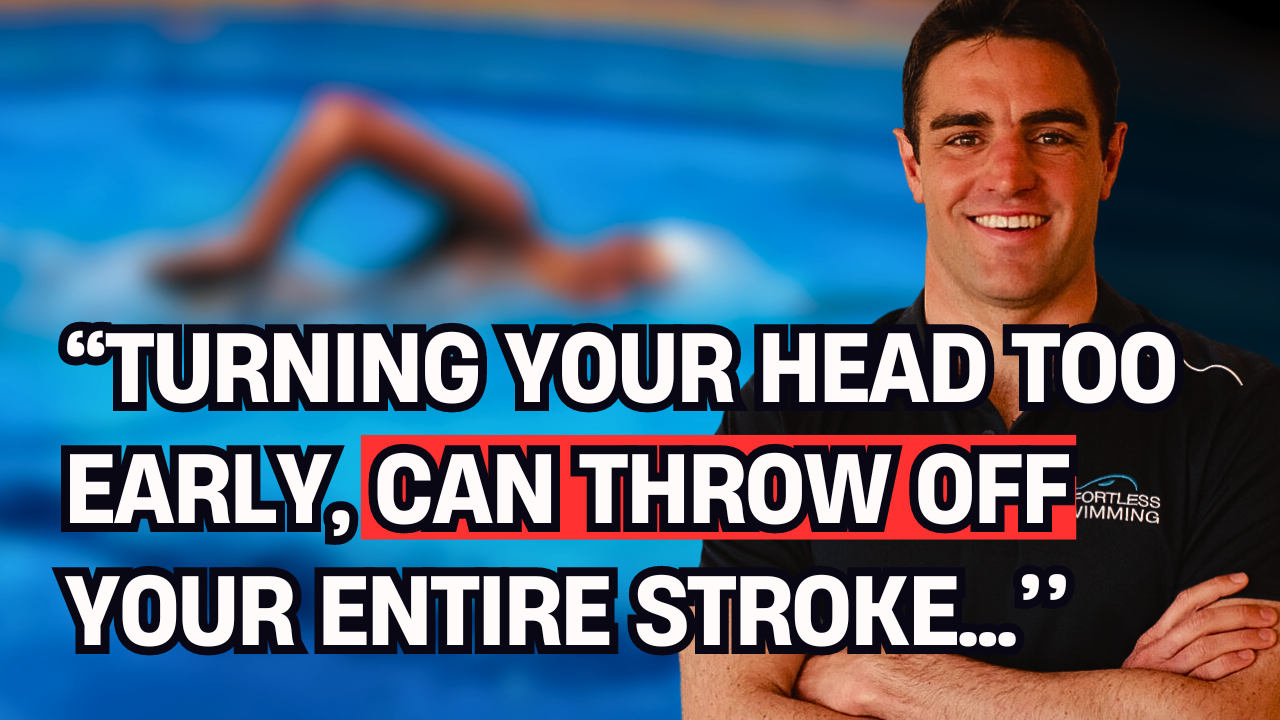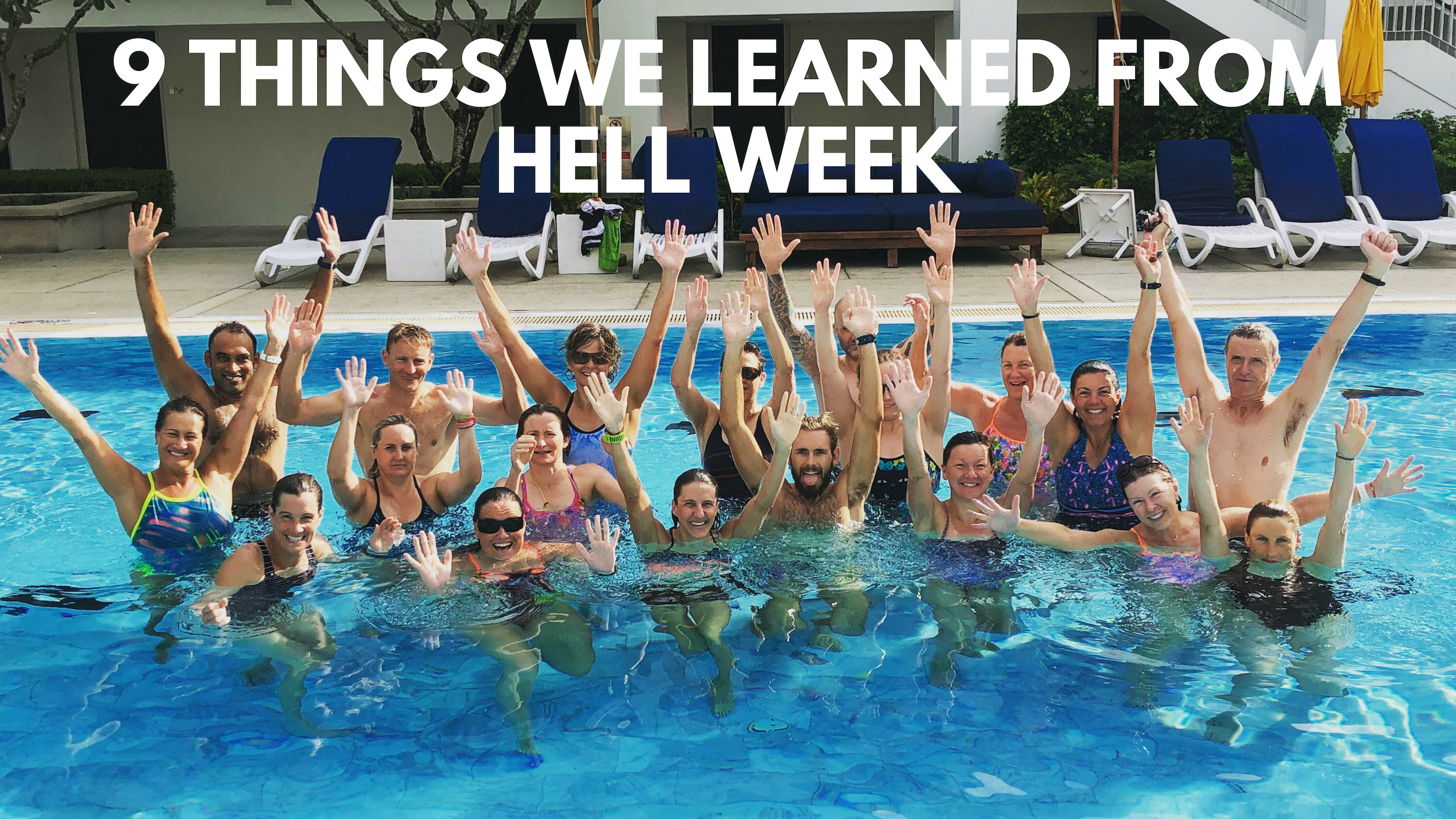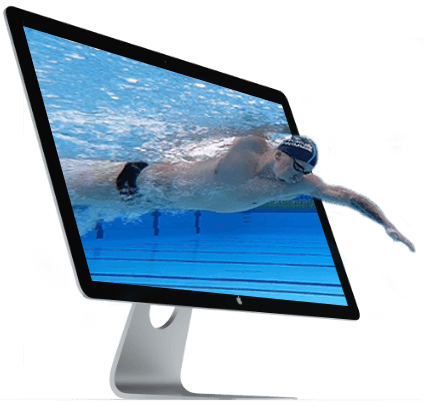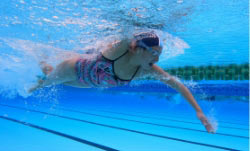We are joined today by Els Visser who is a professional triathlete from the Netherlands Els had a TEDX talk about how a shipwreck experience changed her life. In this podcast, Els shares to us that experience with the hope of inspiring others.
00:37 Sinking Ship Experience
2:57 Stay or Swim
9:42 Surviving the Island
11:54 The Rescue
16:12 Life after the Shipwreck
17:45 Support of Family and Friends
21:30 From a shipwreck Survivor to a Professional Triathlete
23:59 Using the Indonesia Experience as a Mental Tool for the Race
Transcription:
Brenton Ford: Welcome to the Effortless Swimming Podcast. My guest today is Els Visser. She’s a professional triathlete based in the Netherlands. And the way I came across Els was through Instagram but primarily through a story that she shared on a TedX talk about being stranded in the Indian Ocean miles out from shore and basically being a shipwreck survivor. So Els, thanks very much for joining me on the podcast.
Els Visser: Hello and thank you for having me.
Brenton Ford: So you basically started triathlon two years ago but it was four years ago that you had this life experience that very few people can actually go through. An experience where you were lucky enough to come away with your life but it could have very easily gone the other way. Can you share with the audience what happened four years ago?
Els Visser: Yes. I was backpacking in Indonesia and did an internship for my medical studies and then in the last week I had one week left til my flight home and I decided to make a boat trip from the island Lombok to Komodo. And it was a four night boat trip and then on the second night, in the middle of darkness, we got alarmed by the crew because we were making water and we were sinking like in the middle of the ocean.
Els Visser: So the thing was that we couldn’t make contact with people on land and we couldn’t alarm people so nobody knew that we were sinking in the middle of the Black Ocean and the water was coming in really quickly and I think it took an hour or so and then we were, like a really big wave was coming in and we were smashed into the ocean.
Brenton Ford: So what happened with the boat? Did it start taking on water, was there a hole in it or was it the waves?
Els Visser: There was a hole in it and the water was like … the weather was really bad so the waves were really high and the water was really rough and during the evening there were already some windows that broke because of the wind and high waves. And it was a very simple boat as well, I was a backpacker so for me it was a really cheap option to make the trip on this boat so it wasn’t the best, maybe the best choice.
Els Visser: And then yes there was a hole in the front of the boat and it was making water.
Brenton Ford: And when you’re in the ocean, you jumped overboard. Could you see lights? Could you see sort of where you had to go from there? What was it like?
Els Visser: The only thing that we saw was black, it was like all black and when we looked up at the sky we saw lots of stars but the other thing was it was black so we didn’t see anything, nothing. And we couldn’t even see each other so we all had, we were lucky to have life jackets with some survival whistles on it, so sometimes when we couldn’t see each other then we used the survival whistles to get back together and that was really anxious as well because you’re in the middle of the night in the ocean with the waves coming.
Els Visser: Our all around and really big waves, so really cold and also then the fact that you can’t see anything.
Brenton Ford: And then how long until the sun came out and you started to see light and then was it an island that you could see off the coast that you could start making your way over to?
Els Visser: Yeah, so we sank around 11:00 PM and the sunrise was about 6:00 AM in the morning. So yes we had first of all we had to wait the whole night in the Black Ocean to wait til sunrise and then we had some conversations together about if rescue was coming or not. But it was also really quiet because we were so anxious and really shocked with what happened and we couldn’t do anything, just waiting til sunrise and then after sunrise we saw yeah, in far in the distance we saw a mountain shaped island.
Els Visser: So we were surrounded by all the ocean but at least we could see land and one island but we also realized that the island was far far away and that it was almost impossible to go to that island.
Brenton Ford: And you started to swim across eventually or were you just hoping for some boats to come, or what was your thought pattern when you started to see it was there?
Els Visser: So, when we saw that island then that island became visible, we had two options. Waiting in the ocean and we had one small lifeboat for about six people so one option was to stay in the middle of the ocean with that small lifeboat and waiting til maybe rescue could come but we couldn’t make contact with anyone so nobody knew that we were sinking so then we had to wait for a passing boat.
Els Visser: But the days before we didn’t see any boats and the other option was to trying to swim to that island and we almost knew for sure that we couldn’t reach it because it was so far away but at least we could try because the other option, waiting by the lifeboat was not a good option as well so it was really one of another but for me as soon as I saw that island I thought okay, I have to go to this island. And I want to try to make it and probably I’m not going to make it but at least I can try and I will fight for my life instead of that I wait here in the middle of the ocean and just it’s passive waiting and do nothing.
Els Visser: Yeah, so then we started arguing a bit and fighting what we had to do. And I really wanted to swim away to that island but I couldn’t convince the other people and they said it’s too dangerous to swim to the current of the ocean and it’s so far away and when you don’t have energy anymore and you can’t rest and here we have the lifeboat and better to wait here with the lifeboat.
Els Visser: So it was really, well I said two options that we had and people with different opinions and different feelings on what we had to do. So it was pretty difficult but for me, what I said for me it was the island I couldn’t think about anything else so I had … I think it was about 10:00 AM in the morning I thought okay, I have to leave here now as soon as possible because I can use the whole way now when there’s daylight to try to make it to this island instead of that I’ll wait here for any longer losing more energy. So I decided to leave.
Brenton Ford: And so was it just you by yourself who decided to leave or was there a group of you that were …
Els Visser: We were in total with a group of 25 people. And I left and four others came with me. So five of us started swimming and the others were waiting in the ocean. And then …
Brenton Ford: How long did it take you, roughly how long did it take to make it to the island.
Els Visser: We started swimming with five people and I swam a bit faster with a lady from New Zealand so we became separated and I continued my way Gaylene from New Zealand and we just arrived on the island before sunset.
Brenton Ford: How far do you think it was, in hindsight?
Els Visser: That’s like a question that I really, or a question that I still have and that I really want to know but I think you can’t really see because it’s so depending on the currents of the ocean and yes. I have no idea. No idea. We swam for about eight hours.
Brenton Ford: That would be one for Strava. This was with a life jacket on as well?
Els Visser: This was with a life jacket yes. So we swam on our back.
Brenton Ford: So you would have been going very slow, wow.
Els Visser: Yes, and we had to because the life jackets were from the year 1970 or so, so they were really old and we couldn’t close them, so we had to swim on our back to fold our arms across the life jackets to tighten and then we made leg strokes.
Brenton Ford: God.
Els Visser: On the back, we made our way to the islands.
Brenton Ford: And you would have been so hungry and thirsty and exhausted by the time you got there. What happened once you reached it?
Els Visser: When we started swimming I was making jokes with one of the other swimmers, oh when we arrive on this island it’s so good and we’re gonna drink Bintongs, it’s the local Indonesian beer and oh it’s so good again. But then when we arrived on that island we realized that it was a volcanic island with no inhabitants and there was no food, no shelter, no water, there was nothing.
Els Visser: So, yes, that too was to survive that island. And it wasn’t okay, we are rescued now. So we were out of the water and I was really relieved with that but step two was to survive the island.
Brenton Ford: Yeah, and go all Bear Grills and just try and find a way to survive. So the two of you, you and the New Zealander made it across and then the other three. Did you see them come in later or could you see them once you hit the shore?
Els Visser: When we reached the shore then we were looking into the ocean to trying to see if we could see the others. And the thing was the lady from New Zealand she left her husband on the sea. So she was really worried about her husband. But, yeah the only thing we could see was like ocean and waves and no people, no boat, nothing. So, we made our way on the island and what we heard the day after that the others, the other three people who were swimming, they could see us on the island but they couldn’t reach us because the current was changed and they were pushed to another part of the island.
Brenton Ford: So they did eventually make it but a completely different part of the island.
Els Visser: Yes, exactly, yes.
Brenton Ford: Especially around there the currents can be so strong off the coast, there’s just, you can’t swim against them at all, it’s just so strong there and so then how long, so you hit the island and then how long until you were eventually rescued or found? What was the … what happened there? Did they send the boat first or …
Els Visser: We slept the night on the island and we were trying to find some water and maybe something to eat but we couldn’t find anything so at the end of the day we collected our own urine and started drinking our urine to at least stay hydrated. And then we found a sheltered place to sleep and it was close to the beach so we could have a look to the ocean to spot passing boats.
Els Visser: And, during our … we slept for a night there on the beach and then we woke up by sunrise and then we saw in the early morning we saw a boat passing by. So we started waving with our life jackets to trying to get their attention but the boat, it was also for me kind of confirmation that I wasn’t really expecting that boat would stop to rescue us because nobody knew that we were in danger and we were going through this accident.
Els Visser: So the boat, it continued then it passed away and wasn’t visible anymore. And then we were trying to find some water and trying to find some food and a couple of hours later, I think it was late morning then, the same boat that we saw in the early morning it reappeared. But now it was motoring towards us. And they found us and rescued us and the thing was that they had seen us in the morning and they also saw us waving with our life jackets but they thought that we were local people, maybe some local fishermen so they continued their way.
Els Visser: But then the other three people who were swimming as well, they also started waving with their life jacked and then the same boat they saw the other three and they thought okay, maybe we have to … it’s worth it to at least have a look if something is going on there and then they realized that we were in trouble.
Brenton Ford: Did … and then were you the first to be found or was it the people on the boat that got found before you?
Els Visser: No, we were the first to, we were found. So after we got rescued we made our way towards into the ocean again trying to find the other people with the small life boat. And they had spent already two nights in the ocean. It was so big and it’s only an ocean that you can see and it’s so hard to spot … a few people in sea, you can’t really spot these people. So then we decided to drive to the closest island and then we alarmed the police and the rescue teams and in the end the other people were found at the end of the day and they were still with the little lifeboat and they were drifted away from shore.
Els Visser: And two Spanish passengers, they also decided to swim to the island and these two passengers, they were never found anymore.
Brenton Ford: Wow, so your decision to swim across to the island might have saved everyone on the boat who knows sort of what would have happened after.
Els Visser: It’s not sure who which boat in the end rescued the other people. If it was from the rescue team that we sent or it was just a passing boat. I can’t say that it was really because of us.
Brenton Ford: And once you got home after that was there any sort of … was there a period of time where you would mentally just something … that had really affected you? How long did that last and is it something that still sort of comes up four years later?
Els Visser: So, when I came home, I started the week after, I started again with my studies and with the last year of my medical studies. Because I also wanted to continue with my normal life and I thought okay, I can’t take a break now, I don’t think it will help. So I picked up my studies and started doing my last internships but then I think after two or three months, then I suddenly realized what happened to me. And that I didn’t really understand that I was still here and that I had still the opportunity to live.
Els Visser: Because from my feeling … it was like really or it felt that I didn’t have to be here. Instead of that I was here and that I could continue my life, it felt not really how it was supposed to be. And I also got a bit anxious on streets, whenever some dangerous moments maybe in the traffic and I got really panicked and I was scared that something would happen with me again. But in the end I got really good support from my family and from my friends.
Els Visser: And yeah, I had many chats with them about the accident and they really supported me and gave me emotional support in the difficult moments. So by the time I got through it and I felt better and better and now it’s part of my life and I still think a lot about it and every time when I see the ocean or when I swim in the ocean then I think about the accident and also last weekend I had a race in Malaysia and it was pretty close to Indonesia and I have a look at the ocean and then I’m also really thankful that I’m still here.
Els Visser: And I realize that we as humans, we are so small in an ocean and we have nothing to say because it’s so powerful. And you can be such a good and such a strong swimmer but we are so dependent on the currents and on the ocean that we don’t have anything to say about it and for me I think during that time in Indonesia it was just not my time to die at that moment and the ocean it helped me that day instead of it was my enemy.
Els Visser: So, yeah now every time when I’m at the ocean, see the ocean and I really want to show my respect for it so.
Brenton Ford: Yeah, one time I’ve seen the ocean be extremely humbling when I was in New Zealand at a surf break called Raglans and there’s a very strong current there and at this time of day there was a surfer who was about probably 15, no probably 25 meters off from the shore and you could sort of get this, surf this wave and then you’d sort of get taken back, you’d paddle back.
Brenton Ford: But if you were just a couple of meters too far across the current was really really strong and this guy sat up on his board and he just got, basically he was trying to paddle against it for about 45 minutes until he had nothing left. And then he just sat up and he got taken by the current and in about 20 minutes he was gone, we couldn’t see him anymore.
Els Visser: Yes.
Brenton Ford: And so luckily there were some people watching and they called emergency services and a guy, surf life saver came on a jet ski and he went out looking for him, half an hour later returns and he hasn’t got him. And he comes into the beach and he talks to a few of us who were watching and he said what’s the go here, where is this guy?
Brenton Ford: And we said look he’s been gone for almost an hour now out sight so you might just need to keep going further and luckily a half an hour later he comes back and he’s got this guy but had people not been there to call emergency services he’d be in the middle of the ocean, it’s just very makes you feel very small.
Els Visser: Yes, definitely. And also for me that I realize it was a really big risk to swim to that island but for me in the end it was the best decision and what I said the ocean was my friend that day and the current didn’t take me but maybe helped me a bit more towards the island but it could have been the other way around.
Brenton Ford: Yeah, exactly. And did that, so what kind of role did that play in becoming a professional triathlete and racing full time?
Els Visser: For me, it’s now that I really want to make the most out of my life and enjoy every day I have. I don’t look too far ahead anymore, so I’m a doctor at the moment and I really have to dream to become a good surgeon for the world and I really have passion for my medical job and I really like to be a doctor. But, I fell in love with the triathlon sport as well and I discovered a talent in myself that I never knew that I had this talent.
Els Visser: And, i just started racing and I signed up for an Iron Man and I really enjoyed the whole journey towards that race and I had a really good result and it was such an amazing time and enjoyable period that I thought why not give it a go as a professional triathlete and just enjoy it and see what I can make out of it and try to be the best I can be in this sport and as long as I enjoy this and see it as a big adventure, and then I will keep doing it. And when I don’t enjoy it anymore then there’s always something else like my medical profession, which I really enjoy and then I can go back to my medical job.
Els Visser: But at this moment, it’s such a big adventure and I travel a lot. I meet a lot of new people I see a lot of new cultures and the whole triathlon is probably because I only started two years ago so it’s still new so I still learn a lot from it and every race it’s a new experience for me and a big learning process. And yes, it’s a lot of fun for me and really interesting and a big learning process so I try to make the most out of it and as I say I experience life can be short so enjoy it every day and give it all and …
Brenton Ford: That’s fantastic. It’s especially you’ve only been doing it for two years you’ve had some really good results and there must be so much there that you’ve still got to I guess improve and you can still learn from only doing it for two years which must make it really exciting too.
Els Visser: Yes, definitely. Yes and the other thing which is really interesting to me is especially with the long difference races or the half distance or the full distance races is the mental part is such an important part of the race and I think through what I’ve been through in Indonesia that really that I really had to survive and I really had to fight for my life and that I can use this in my races so when I have a difficult moment and yeah sometimes I think back to the days in Indonesia and then I think okay, I can continue and it’s not that I’m going to die here on course so just take care of yourself and make it to the finish line and keep fighting. And that’s what I really like in the Ironman is that it’s such a tough race and it’s a big physical and mental challenge but we as humans we are capable to achieve a lot of things and we have such a physical and mental strength that we can test it to the limit in Iron Mans.
Brenton Ford: Absolutely, that’s when you feel most alive, I reckon. I’ve only done one iron man event and I’ve done a 20k swim over in Western Australia and I think between those two things and surfing pretty big waves over in Bali a couple of years ago, those three things are when I probably felt most like the energy that you get inside of yourself when you’re pushed to the limit and you’re tested. You really get to sort of find something out about yourself and its’ that reflection afterwards and the following few days where things become a lot clearer and you can sort of look back at what you’ve done over the last couple of months and see what’s worked and what hasn’t and it’s not until you actually get to that point where you’re right on the edge that you really get to I don’t know it’s like you get to the point where all the stuff that you’ve put in in the past comes to this point where you’re actually, where you really just get to test yourself and see what you’re made up and it’s those life experiences that add up and add up.
Brenton Ford: And I think it’s what really makes for a good life and it’s exciting and I’ve never felt the same sort of buzz as walking through that chute in Iron Man or just it’s very different than anything else I’ve experienced.
Els Visser: Yes.
Brenton Ford: Is it … do you still get that buzz afterwards?
Els Visser: Yes I do definitely. Yes, for sure. And I think it doesn’t really matter if you have raced 10 or 20 or 30 iron mans, you still get that feeling when you cross the finish line and every time it’s another big achievement. And it also I think it doesn’t really matter, the time doesn’t really matter, it’s just the complement of such a big race as an age group or as a professional, for everyone it’s the same and every individual works so hard for it and that’s another thing that I really like is you are on course together with the age group and with the slower and the faster people.
Els Visser: But we are all fighting for the same goal and we are all giving our best to achieve that goal and to achieve the finish line and I think it’s such a strong community yes and a powerful community with lots of energy in it and really people who live their life.
Brenton Ford: Yeah, absolutely. It’s a great thing to be a part of and for those people listening, what’s the best way to get in contact with you? What are your social media handles and you’ve done the TedX talk I’ll put on our website along with the podcasts as well because I think that’s worth watching and goes into some more detail as well that we didn’t talk about today but how can people get in touch with you?
Els Visser: I’m mainly on my Instagram, ElsVisser3. Maybe you can put the link as well and on my Facebook ElsVisserTriathlete and I also have my own website, EslVisser.com.
Brenton Ford: Awesome, we’ll make sure to link those in the show notes. So Els, thanks so much for joining me on the podcast and best of luck for all the upcoming races and I know that you’re completing your PhD at the moment so there will be a bit of downtime there but it’s exciting to see where you can get to over the next three, four, five years and being so new to the sport. So well done on your [crosstalk 00:29:20]
Els Visser: Keep following me.
Brenton Ford: We will. We will. And I really appreciate you taking the time out.
Els Visser: Yes, you’re welcome. Thank you very much.








